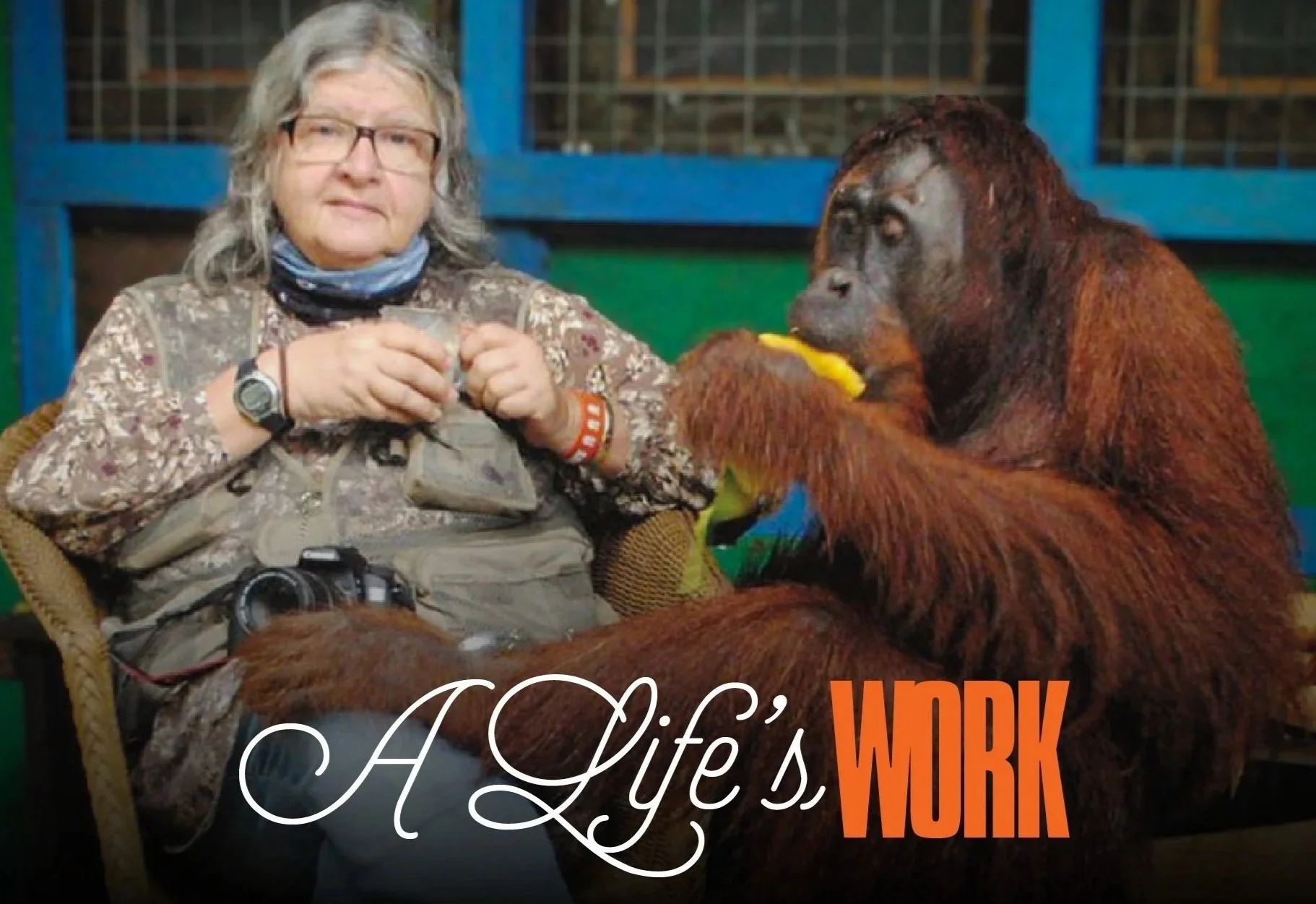“We were all afraid of the mythical Kandar, a decrepit orangutan that has decayed into a soulless ghoul, like the walking dead.The elders warned us not to stray too far into the forest.”
Jeffrey, Tour Guide
After high school I moved to a city in Java to study, but I found the noise and chaos overwhelming. When I would come back to visit my home village, among the trees, birds and monkeys, I found serenity, which ultimately led me to return to guide tours and share my love for nature.
Roger has perhaps been the orangutan I most admired. Each territory has a king, and Roger ruled over the Tanjung Puting camp area for about five or six years. He was every bit the monarch in appearance: huge, enormous cheek pads, a quintessential dominant, alpha male. I came to learn that he was a gentle giant. I remember one rainy afternoon during feeding time I saw Roger up in the trees building a nest. I assumed he was building it for himself, but once it was finished, he moved aside and let a female and her twin babies climb in. I was astonished. It’s extremely unusual for a dominant male to build a nest for another orangutan. In seven years, I had never seen anything like it. Roger was a rehabilitated orphan, and I wonder if that may have contributed to his tender nature.
Orangutan behaviour is incredibly similar to humans, especially in how they care for their young.
A mother spends seven to eight years raising a baby, ensuring it learns everything needed to survive. No other mammals in the world raise their offspring for such a long period. This similarity is striking for anyone encountering orangutans for the first time, especially when they look into their eyes, which are so much like our own. It’s a profound, connecting experience, and can be incredibly moving. I’ve even seen some people brought to tears. My hope is that it sparks people to go away with a newfound sense of responsibility and determination to help in their conservation.
Sadly, tourists do still sometimes come with unrealistic expectations based on what they have seen on television or in zoos. Orangutans are wild creatures, and I urge those encountering orangutan anywhere in the world to remember to respect their space and keep their distance.
I can’t say there aren’t deeply sad moments, like when you see an orangutan wandering through deforested areas, confused and homeless.
I once saw a mother carrying her dead baby, unable to let go. The pain in her eyes was heartbreaking.
But I’m optimistic about the future. Decades ago, Dayak people hunted orangutan for food, but our attitude toward them has changed dramatically over the years. Nowadays large swathes of society are recognising their importance, not just as a unique symbol of our island, but also the vital role they play in maintaining the natural balance of the forest, and the entire ecosystem.
Orangutan are endlessly fascinating, and every encounter feels magical. I never get bored. To me, they are not just animals, but fellow beings on this planet, and it’s up to us to ensure they survive for future generations.
**Eco-tourism would not be where it is today in Tanjung Puting without the vital role played by Orangutan Foundation International (OFI) for over 50 years. For more information and to support the OFI’s work visit https://orangutan.org
More Stories






